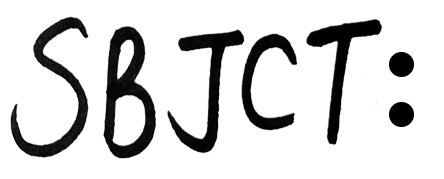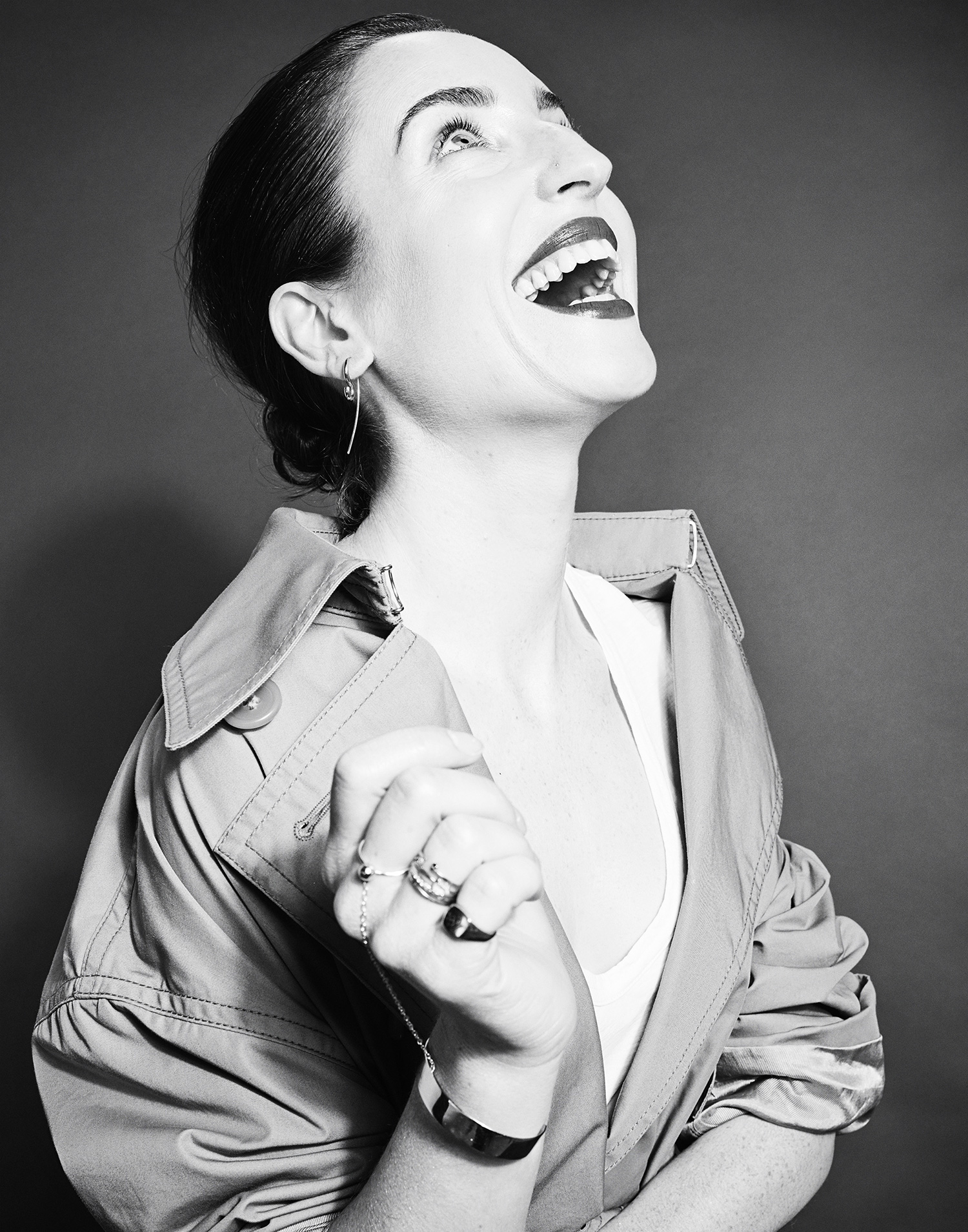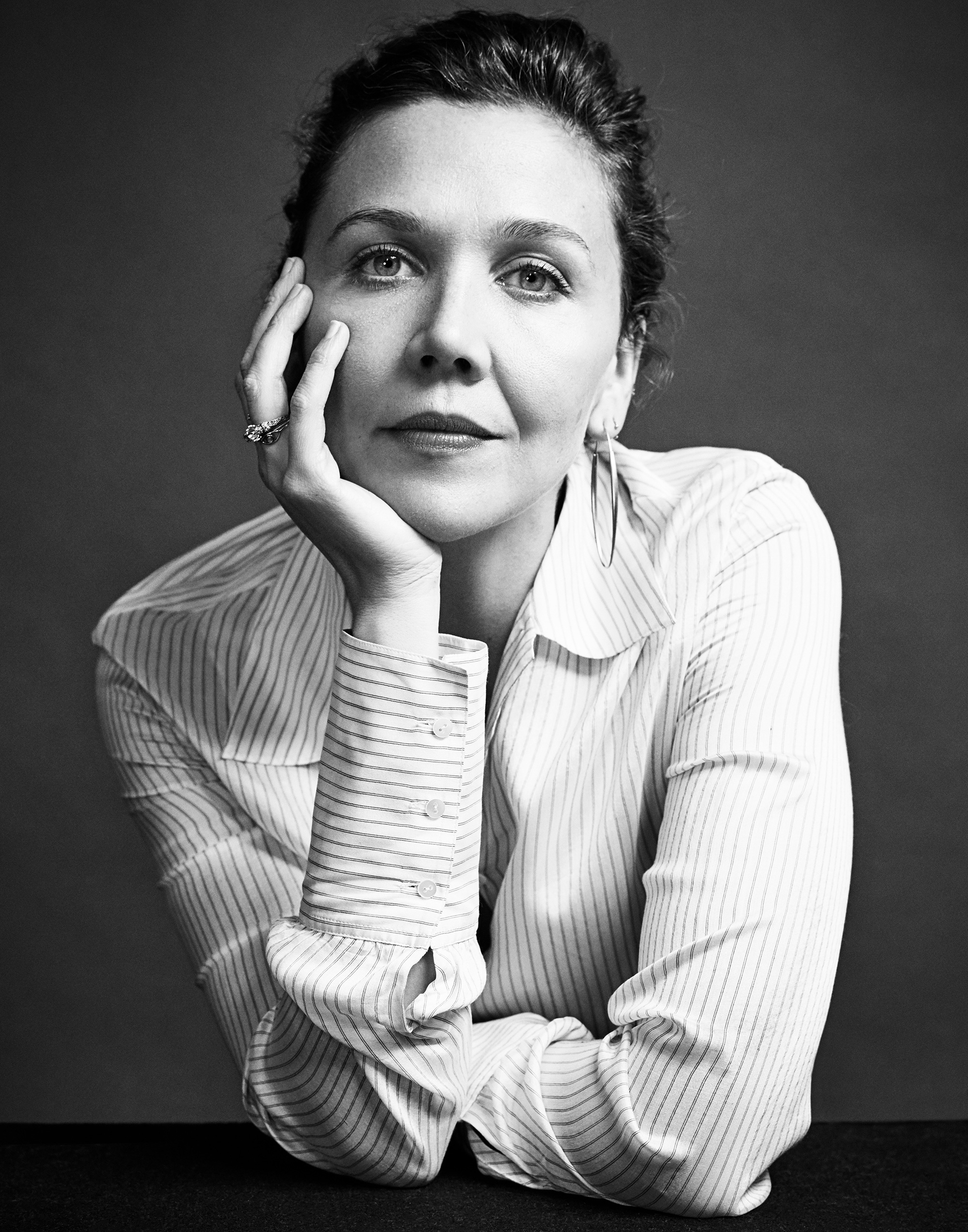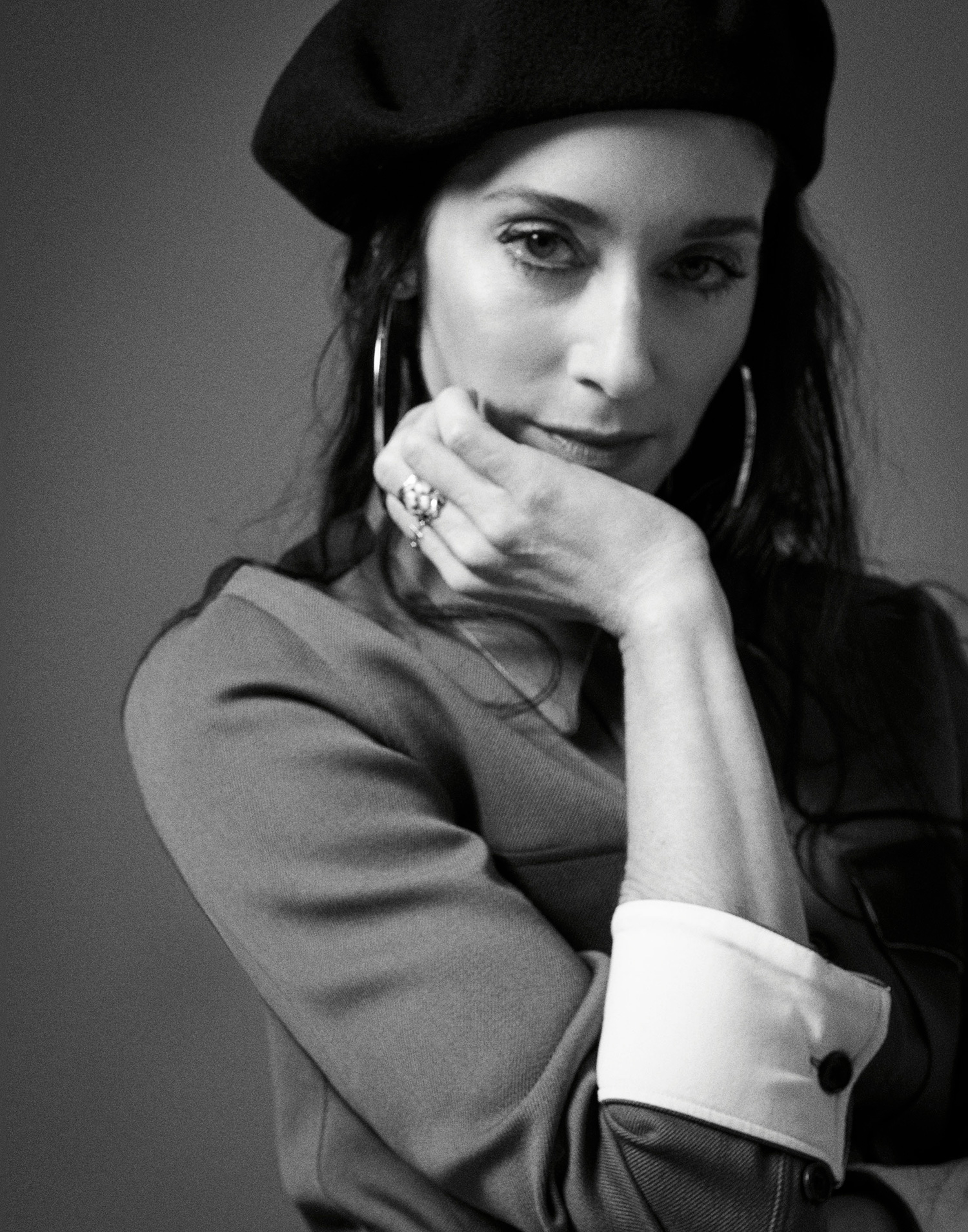Get to know Nazanin Boniadi, actor and activist, including for Amnesty International and Human Rights in Iran. EW spoke with Nazanin about her identity, her process, her years championing the lives of others, and why while acting lets her explore the human condition, activism allows her to try and CHANGE it. Read on…
BY ERIN WALSH
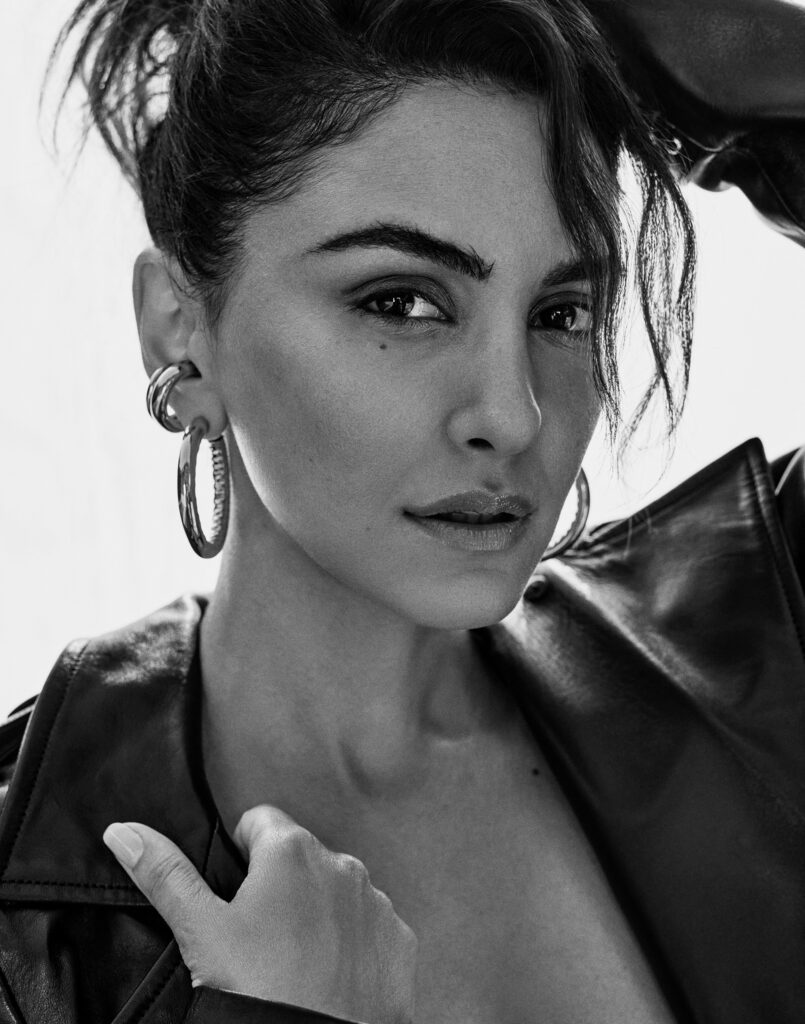
JUMPSUIT Naked Wardrobe JACKET Nour Hammond EARRINGS Jennifer Fisher
Erin Walsh HELLO LOVELY NAZANIN! Thank you so much for joining our SBJCT Collective. You are definitely a model #SBJCTGirl, as you have been a serious catalyst for change on the activism front, in addition to your formidable resume as an artist. I would love to start at the beginning. Can you tell us a bit about how you grew up, your background, and how you ended up working as an actor in Los Angeles?
Nazanin Boniadi I was born in Tehran in the aftermath of the Iranian Revolution. My father was opposed to the new regime and his life was at risk, so we had to escape when I was just 20 days old. We were granted political asylum in the UK. We lived in a bed and breakfast and then government housing. We didn’t have much, and like many immigrant families that want stability for their children, my parents stressed the importance of academics. So, I studied hard and I managed to get a scholarship to a private high school. I decided to pursue medicine, which is very much encouraged in the Iranian culture. I always knew I wanted to help people, so it felt like the right career choice. But I also had an artistic side that couldn’t be repressed. So, I was a part of every high school play, I took ballet, violin, and keyboard classes. I moved to the U.S. for college where I was a pre-med student at the University of California, Irvine. I graduated with honors in Biological Sciences, but I knew that medicine wasn’t my calling. I decided to give myself a year to pursue my acting dreams. But industry folks constantly reminded me that even actors who have lived and breathed acting since childhood have a hard time breaking through, let alone starting in your mid-20s.
Compounded by the fact that I was a Middle Eastern woman with a British accent in a post-9/11 world. I took intensive acting classes in LA and did as many free student films as possible to create a reel, so that I could find representation. I booked one of my first auditions, a bit part playing a journalist in the first “Iron Man” film directed by the wonderful Jon Favreau. And then my first steady job was playing a nurse on “General Hospital” for two years. After that, I wanted to get a taste of drama school, so I decided to take a summer intensive in contemporary drama at the Royal Academy of Dramatic Arts in London. It was transformative. When I came back to the U.S., I landed some guest spots on prime time shows. Then came my first recognizable role, playing Nora on “How I Met Your Mother.” It was such a wonderful experience. I suddenly became the “half-hour girl” and received a ton of sit-com interest after that, but I was dying to switch things up and do drama. And then I was lucky enough to land the role of CIA analyst Fara Sherazi on “Homeland” which is when things really started to change for me, and I felt like I could actually do this for the rest of my life. I’ve been at it for 14 years now, so my advice to anyone who has a dream is: don’t listen to the naysayers. It’s never too late.
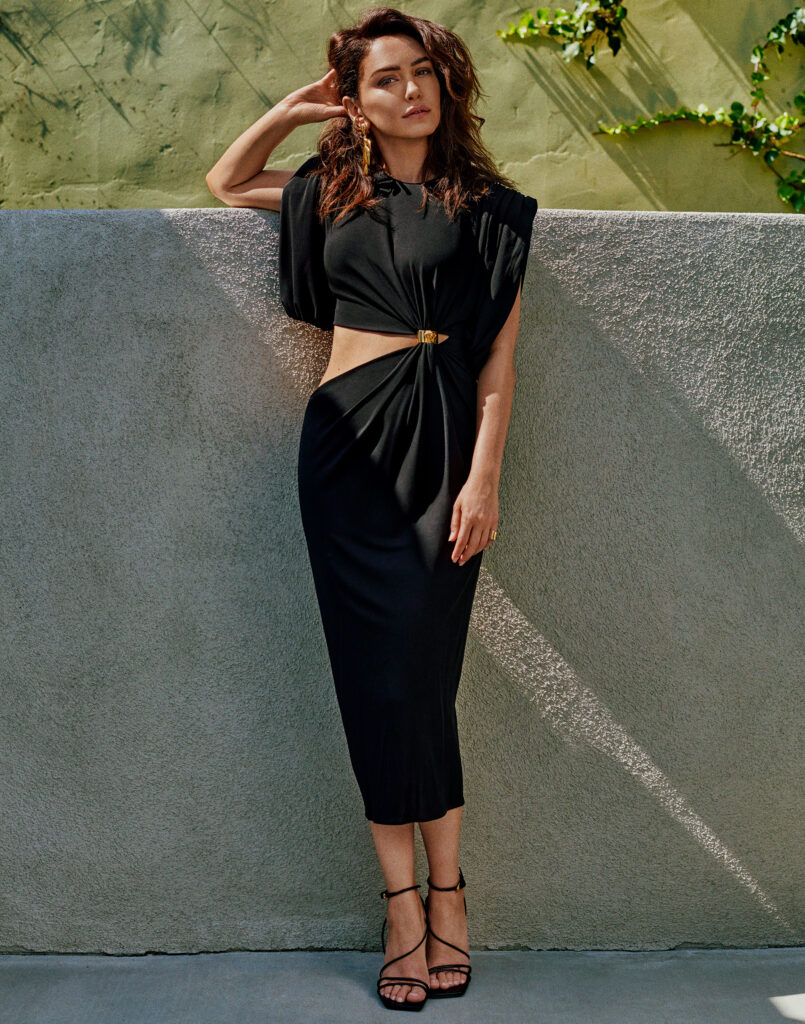
DRESS AND SHOES Versace RING Jennifer Fisher
EW What is your favorite project you have participated in creatively to date? Why?
NB So many favorites, for different reasons. I poured my heart and soul into playing both Clare on “Counterpart” and Zahra in “Hotel Mumbai.” Both were young mothers with spines of steel who found their strength and themselves in motherhood. Clare was enigmatic, tough, damaged, brainwashed, and duplicitous. Zahra was privileged and carefree. But both women overcome their weaknesses and inner obstacles to protect their children. And the creatives, cast, and crew on both these projects were just a joy to work with. I seem to gravitate towards playing strong women. It’s something I personify in my advocacy work but anyone who knows me personally knows that I’m quite goofy in my daily life. Maybe that’s why I like tapping into my warrior alter-ego on-screen. Working with Claire Danes and Mandy Patinkin on “Homeland” was truly a master class in acting. But I also absolutely loved playing Nora on “How I Met Your Mother” and I’m excited to do more comedy in the future.
EW You were a spokesperson for Amnesty International USA and you were recently appointed as an Ambassador for Amnesty International UK. You’re also a board member at the Center for Human Rights in Iran. Can you explain to us your work at the forefront of these causes and in essence, some of the main challenges facing Iranian women at this crucial time? What kind(s) of change are you hoping will emerge from your work?
NB My work with Amnesty and the Center for Human Rights in Iran has been focused on championing the rights of women, children, and prisoners of conscience in my homeland. Women have been at the forefront of the fight for freedom and equality in Iran for decades. The past couple of years have marked incredible progress in global women’s rights and with the “Me Too” movement, which more than just a hashtag, is about the contagion of courage. But unlike women in the Western world, the plight of our sisters in Iran have gone largely unsupported. While we rallied for our workplace rights and dignity, women in Iran took to the streets to demand their most basic rights and freedoms, and at far greater cost. In Iran’s discriminatory and patriarchal system, women’s court testimony and inheritance are considered half that of a man; women and girls are forced to wear the hijab in public and at school; married women are forbidden from getting a divorce or traveling abroad without their husbands’ permission; women cannot become judges or President; women lack legal protection against violence, and domestic violence is not even addressed in Iranian law; girls can be married at age 13, or younger with the consent of the father and a judge; performances by female singers and musicians are restricted, depending on province; women are banned from attending certain kinds of public sporting events; and females convicted of adultery have been subjected to unspeakable cruelty (including stoning). Countless Iranian women have risked their own freedom and security to oppose these oppressive laws, which is why they have been dubbed “shirzan” or “lioness,” because of their fearlessness in the face of tyranny.
Much of my work is based on raising awareness on these causes, including writing op-eds and giving interviews, or trying to get press coverage on the issues. Change only comes when people demand it. So unless the public is aware of these injustices, no one will feel the empathy needed to take action. But another important aspect of my advocacy work is finding solutions and encouraging policy change. This is where we have fallen short in our support for the women of Iran and why I’ve spent so much time talking to lawmakers at the UK and German parliaments, and on Capitol Hill about making the protection of women’s rights a central part of our foreign policy objectives. I’ve also advocated for policies that hold Iran’s human rights violators to account, ensure the freedom of dual and foreign nationals being held hostage in Iran, protect the right to asylum, overturn the US Muslim majority travel ban that has separated many families, and ensure there are no obstacles to humanitarian aid reaching the people of Iran. Banners and provocative headlines aren’t enough to impact change. It takes substantive understanding and long-term dedication.
Banners and provocative headlines aren’t enough to impact change.
EW What are some ways our readers can learn to be of service? And to start, what’s the best way to educate ourselves on the issues in the first place?
NB I encourage people to visit the Center for Human Rights in Iran and Amnesty UK websites. There’s a wealth of information people can read up on and find out how to help. I’m also very active with my advocacy on my Twitter account.
EW What is your favorite place to collect your news information?
NB I’m a foreign policy nerd so I subscribe to Foreign Affairs magazine and often use their mobile site. I also frequent the Defense One website. And I follow some incredibly smart policy folks on Twitter. Social media really is a double-edged sword. But if you can filter out the misinformation and disinformation and you follow trustworthy sources, it can actually be a great tool for receiving and sharing news. I always look at the validity of the source for the news I’m reading. I’m also a fan of PBS NewsHour.
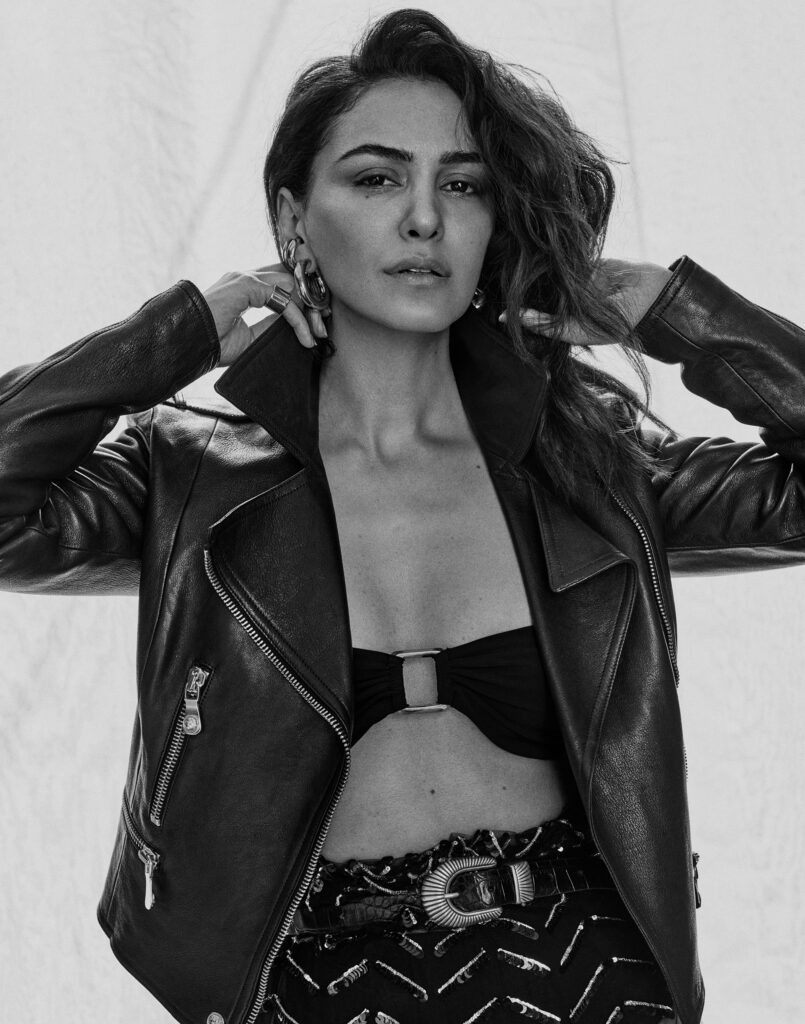
JACKET Versace BANDEAU Anemone SKIRT Valentino EARRINGS Jennifer Fisher
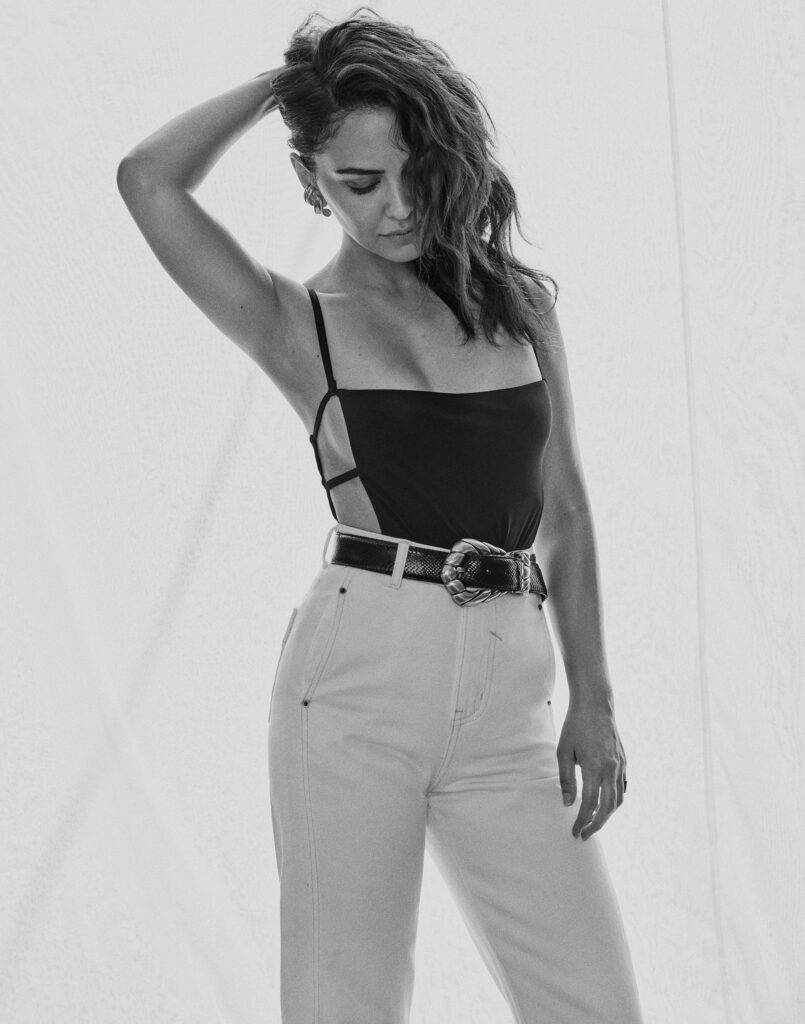
BODYSUIT Anemone BELT Iro EARRINGS Jennifer Fisher
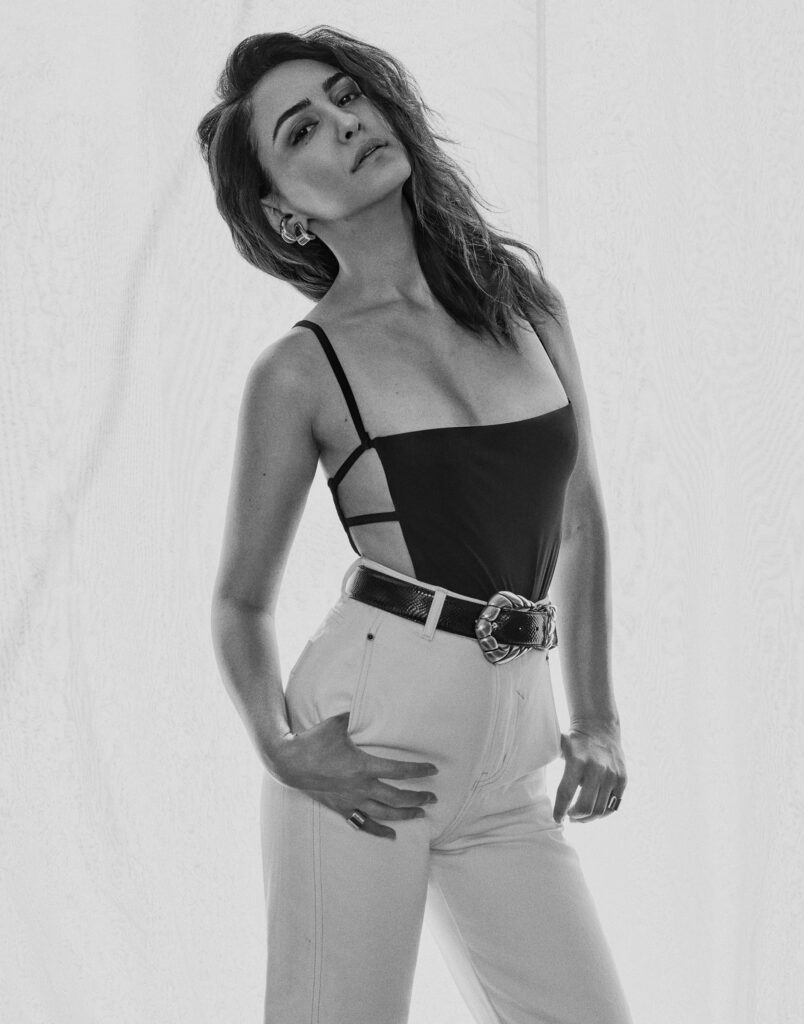
EW Let’s talk about your role as an artist. You have participated in many emotionally challenging roles that examine political upheaval, international relations and human suffering. Some of your projects, particularly Hotel Mumbai, I found very challenging as a viewer to watch because it was just so real, so raw. What do you consider your responsibility to be as an artist?
NB I always say that as an actor, I get to portray the human condition, but as an activist, I hopefully get to change the human condition. The common thread is empathy. I can’t imagine doing one without the other. Which is probably why I gravitate towards roles that allow me to raise awareness on an issue, bridge differences or even just start a conversation that needs to be had. “Hotel Mumbai” was such a project. It was an anthem of unity and resistance against the worst of human nature. It was also an examination of an array of raw human responses to deep-seated class and social divides, constructs, and conditioning.
Don’t get me wrong, I think there’s immense value to pure escapism and I don’t intend to only take on projects about timely or timeless issues, but I think there’s a reason why I get cast in those roles. I’m very invested in stories that make people think and feel. I’m most fulfilled when my two worlds collide. I think on a granular level my responsibility as an actor is simply to bring a character to life and to be a part of bringing the director’s vision to reality. But on a macro level I think an artist should be brave and honest. Not only in their work, but in their relationship to the world and to life. As artists, we rely heavily on the freedom of expression in our work, which is perhaps why so many artists defend this basic human right when it’s violated. There’s a reason why artists are among the first groups of people who are censored and silenced in closed and oppressed societies like Iran, because we can communicate to the masses and tyrants are usually afraid of our influence. But with that platform comes a huge responsibility to get informed and champion the rights of the very people who support us in our careers and allow us to live our dreams. If we’re successful it’s because people buy tickets to watch our movies and plays and tune in to our TV shows. It’s our moral obligation to support those very people when their rights are being infringed.
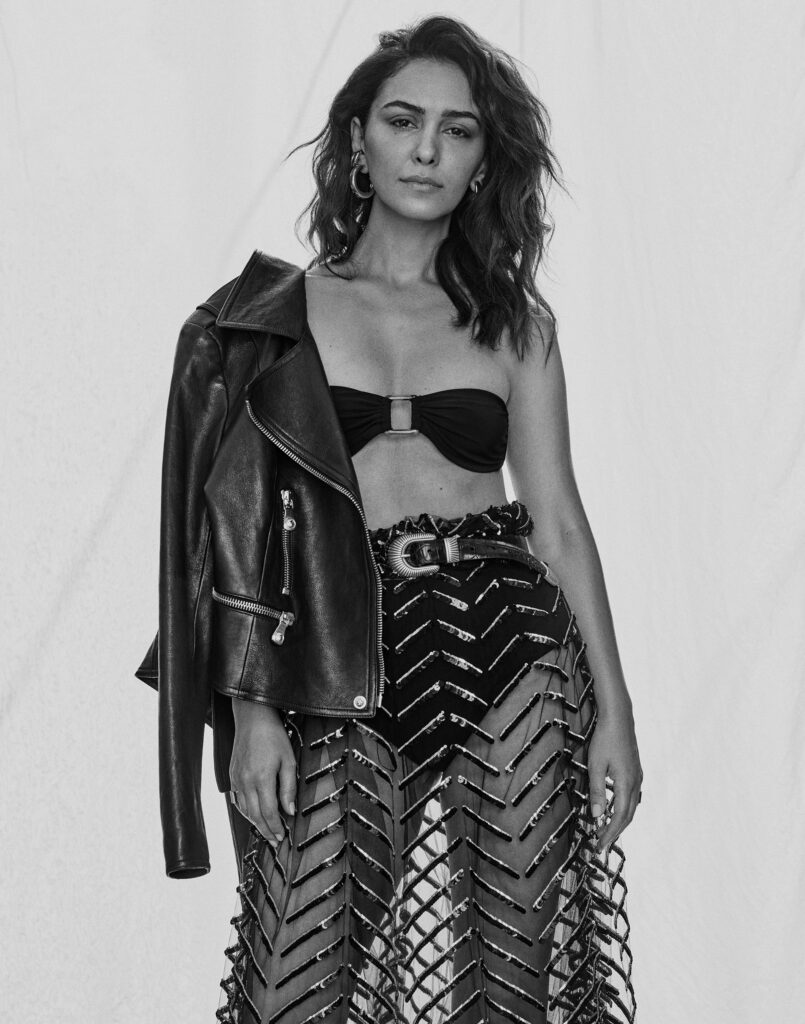
EW How do you use your platform to engage with the causes that you believe in?
NB I’m really grateful to be working with incredible organizations that help me to best utilize my platform. I like to have a strategy where I research an issue I’m passionate about, engage in grassroots work, then help to raise awareness, and guide solutions. I get inundated with requests from various charities and causes. In order to avoid burnout, it’s really important to set goals and stay focused and committed to achieving them. My focus has been global women’s rights and human rights in Iran. There are many other causes I believe in, but to make real progress I think it’s important to pick your battles and not spread yourself too thin. Which means that, unfortunately, I have to turn a lot of requests down. Not because I don’t care, but because there aren’t enough hours in the day for me to engage on every issue in a way that is authentic and productive.
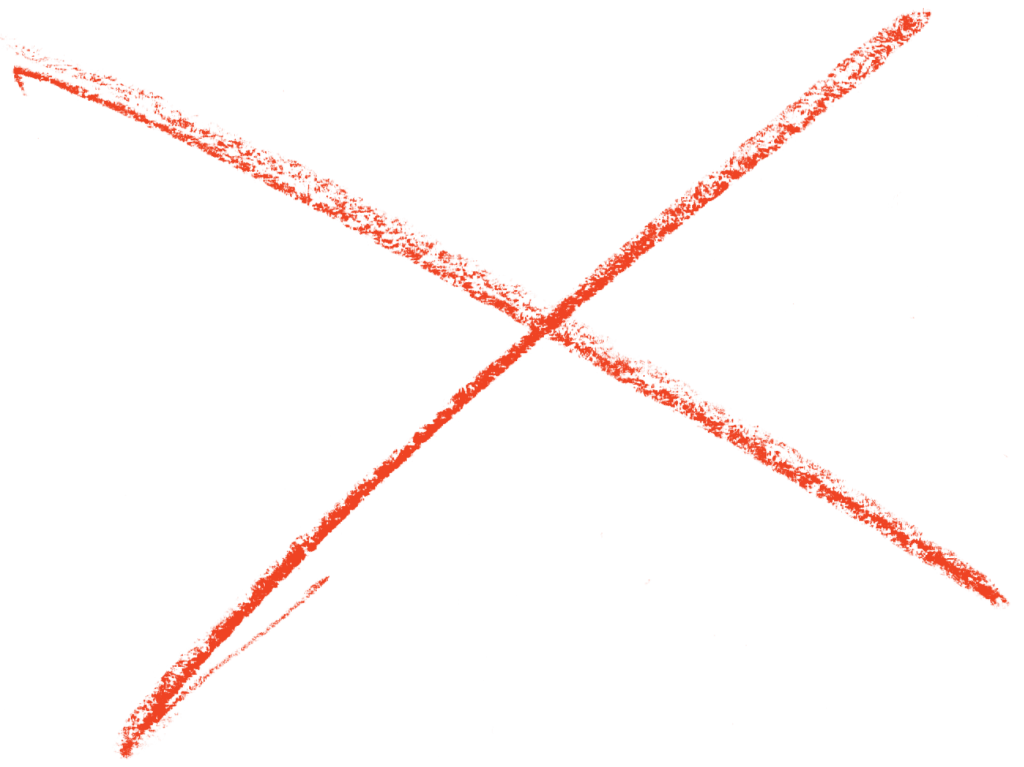
EW Biggest frustration with the entertainment industry in general?
NB Under normal circumstances, I’d say things like pay inequity, minority and female representation, and the tokenization or erasure of Middle Eastern and South Asian actors. I urge people to visit my friends at the MENA Arts Advocacy Coalition to learn more about that final point. Although we’re having the right conversations and taking steps in the right direction, we still have a long way to go. But given that the industry has come to a standstill because of the pandemic, I think the biggest frustration right now is not knowing how easily the entertainment industry will be able to bounce back and what major changes that might entail.
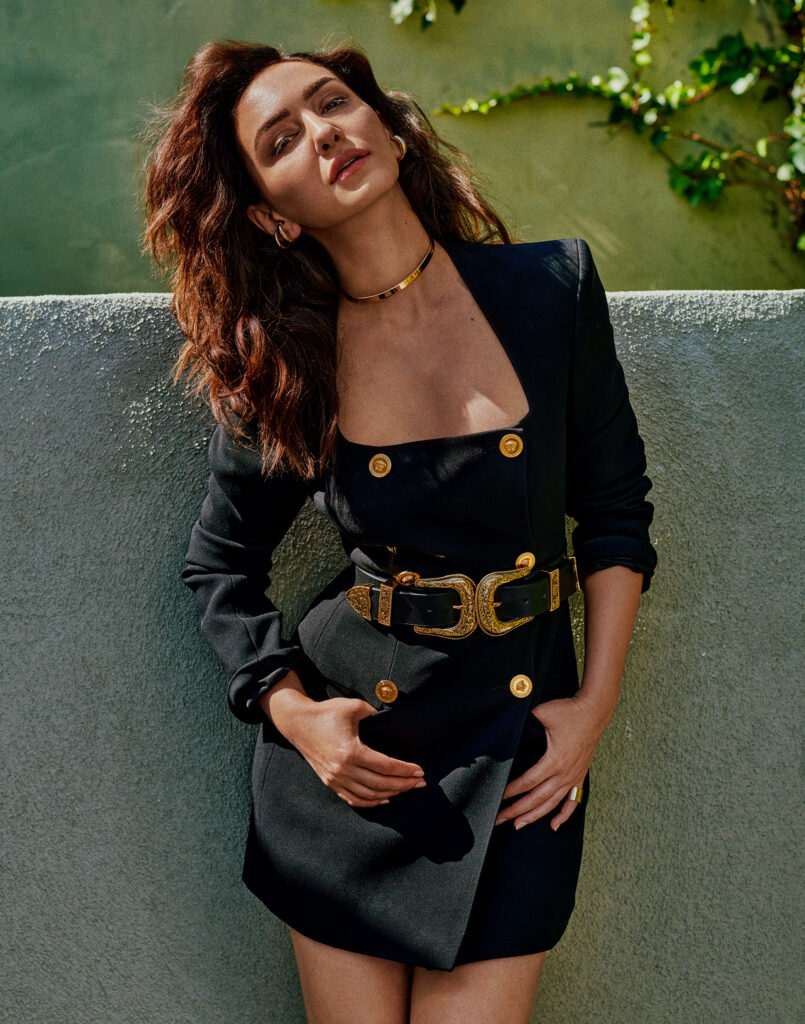
DRESS Versace BELT B-LOW the Belt EARRINGS Jennifer Fisher
EW It was interesting to me- during our shoot, I felt that it was important to shoot you in a powerful, provocative way, with YOU at the reigns of your power as a feminine being. You reminded me that this was a departure from your past shoots. How so? How does this make you feel?
NB I have an alter-ego I call Nina Zan. Which is basically my first name Nazanin, spelled backwards. Very fitting because she’s the yin to my yang. And Zan just happens to be the Persian word for woman. Nina isn’t constrained by the over-politeness of British culture or the prudishness of Iranian culture. You’ve managed to bring her out in this shoot, which is fabulous because it doesn’t happen often. I think when I was younger, I felt the need to color inside the lines. Part of that was culturally imposed by my Anglo-Iranian upbringing, but so much of it was self-inflicted judgement. I had very set ideas about how I should be seen. Very ladylike. I mean, I meet with and address politicians and leaders across the world — who tend to be powerful men — and I’m an actress. There’s a dichotomy there. I’ve felt the constant need to prove my intelligence to people who may have preconceived ideas about women in entertainment, and part of that has been to diminish my sexuality, and to always appear elegant and dignified. So, I think people have often dressed me accordingly in photo shoots. I probably made them think I wouldn’t be comfortable being more daring. But if there’s ever a time to be daring, it’s in the world of make-believe. I think the older I get, the more comfortable I am in my own skin, and the more I’m able to unapologetically own every part of who I am. Women are not just one thing. We are complex and multifaceted. And it’s very freeing to be able to color outside the lines.
EW You have been cast in Amazon’s Lord of the Rings series which will send you to New Zealand for a year! What can we expect?
NB You can expect a lot of secrecy. My lips are sealed. But I can tell you that we had already started production before New Zealand had to lockdown because of the pandemic. We are all so very excited about what we’ve seen and experienced so far. It’s really magical. Just beyond. Ugh, I so wish I could share more. This is torture!
EW It has been a time of tremendous change and shifting of late, which has definitely altered all of our plans, to say the least. What has this time of quarantine and transition been like for you? How have you been staying busy? What is helping to soothe?
NB Well, I flew back to the U.S. from New Zealand in late March when production shut down. I was fortunate enough to spend the lockdown near the beach in Southern California, so I got some nature therapy in whenever I could. I made it a point not to spend too much time indoors. I got my daily exercise in. And I went full force on my advocacy work, which has proven to be as much for my own sanity as for the greater cause. One of the things I’m most proud of completing during this time is my short documentary film, STATELESS, that I produced with an incredible London-based team, about refugees in Northern France. I visited asylum seekers in July 2019, when I volunteered with the non-profit Care4Calais, and I documented their stories. These are people who are caught between a homeland where their lives are at risk and an international community that rejects them. The film was released by ATTN: media in time for World Refugee Day. There has also been much FaceTiming with friends and family to ease that sense of isolation. It has been a really interesting time of reflection.
These are people who are caught between a homeland where their lives are at risk and an international community that rejects them.
EW Favorite place in the world?
NB I grew up in London, and every time I go back I just feel at home. But I also fell in love with Florence, Italy. And a place called La Residence in Franschhoek, South Africa. I may have a different answer after I’ve had the chance to explore New Zealand. And my dream is to someday be able to visit the ruins of Persepolis in Iran.
EW When and where have you felt most at peace?
NB Age 6, on a rowing boat with my parents on the Serpentine River in London’s Hyde Park.
EW What are you most looking forward to in the upcoming year?
NB I’m looking forward to hopefully reestablishing some semblance of normalcy in a post-pandemic world. And I can’t wait to head to New Zealand to start filming again. They really managed the virus so well over there. I just hope we get to a place where borders open, so that friends and family can visit me.
EW On your nightstand to read?
NB Dr. Nina Ansary’s latest book ‘Anonymous is a Woman.’
EW Comfort food?
NB Dark chocolate anything.
EW Comfort person?
NB Me. I’ve been practicing mindfulness and it’s amazing how much strength and peace I’ve been able to offer myself. A real necessity during the lockdown.
EW Comfort ENSEMBLE?
NB A summer dress and sandals. Or great jeans, a tee, blazer and boots. Always add hoop earrings when possible! And I love a great pair of sunglasses and a cross-body bag.
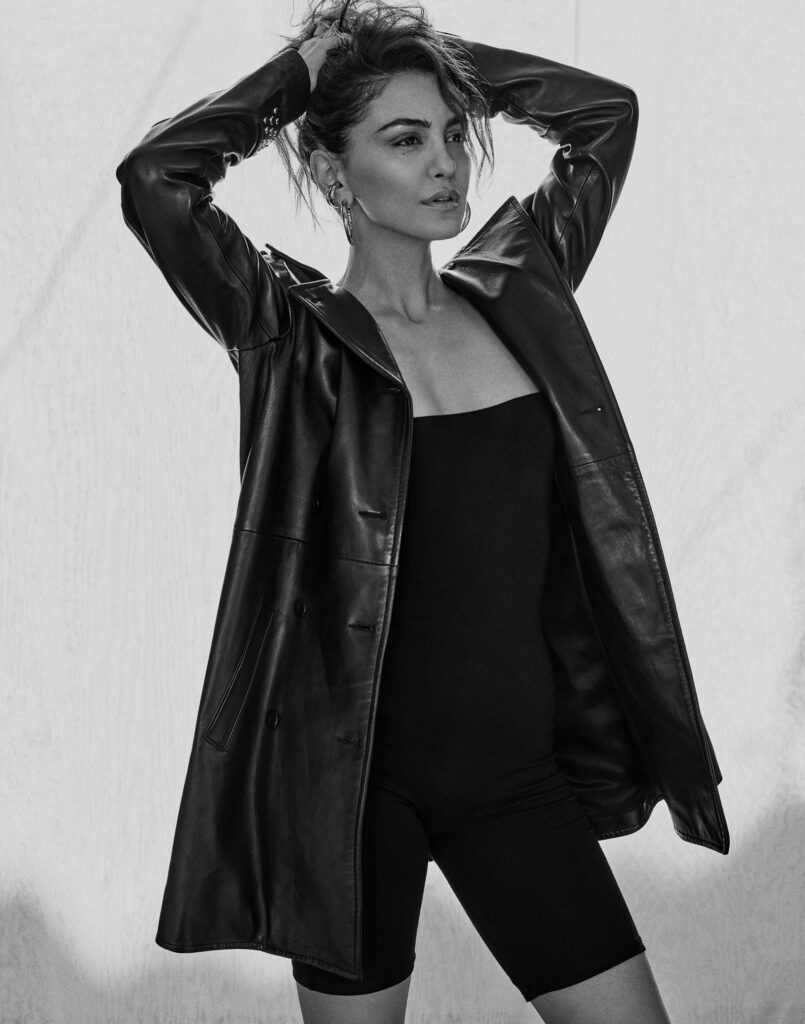
JACKET Nour Hammour JUMPSUIT Naked Wardrobe
EW Nazanin, what’s your SBJCT? What really moves you and drives you?
NB Love. My SBJCT is love. It’s easy to hate rights abusers, for example, and approach advocacy from a place of vengeance. But I’m motivated by my love for the disenfranchised. For humanity. Because freedom, peace, equality, and justice are the ultimate expressions of love. I was so inspired to see the global solidarity for the renewed American civil rights movement. Structural racism must end everywhere, including in my homeland where Black Iranians, Afghans, Kurds, and other minorities constantly face danger and are systemically discriminated against. I hope to see the same solidarity for the brave people of Iran. About 1,500 protesters were reportedly gunned down and killed by state security forces in Iran’s November 2019 anti-government protests. Thousands more were imprisoned. And several have since been sentenced to death based on forced confessions. It was heartening to see Iranians across the world recently unite in their call to stop these executions. I hope our collective voices will stop these atrocities. And I hope for a day when our capacity for empathy becomes limitless, so that we stand united in our common humanity and fight against injustice whenever it may occur at home and abroad.

